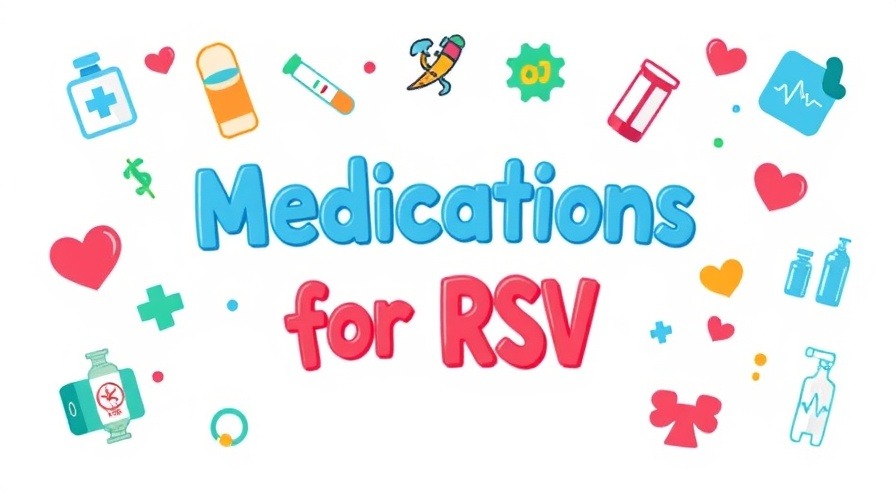
Understanding the Respiratory Syncytial Virus
The respiratory syncytial virus (RSV) is an enveloped RNA virus primarily responsible for bronchiolitis and pneumonia in infants and young children. It impacts the respiratory tract's lining, leading to critical conditions, especially in high-risk populations, such as premature infants or those with underlying chronic health conditions.
In 'Medications for respiratory syncytial virus (RSV): Nursing Pharmacology', the discussion dives into key treatment methods for RSV, exploring insights that sparked deeper analysis on our end.
Two Key Medications for RSV
When managing RSV, two primary classes of medications are utilized: monoclonal antibodies, like palivizumab, and antiviral medications, like ribavirin. Understanding these treatments is crucial for parents and caregivers who want to protect their children during RSV season.
How Palivizumab Works
Palivizumab is a monoclonal antibody given by intramuscular injection, targeting the fusion protein of RSV. This protein allows the virus to infect host cells. By neutralizing this protein, palivizumab effectively prevents RSV from causing further infection. Typically, it is administered monthly during the RSV season to high-risk infants.
Potential Side Effects of Palivizumab
Although it is generally well-tolerated, palivizumab may cause injection site reactions, fever, or gastrointestinal discomfort. Parents should know how to manage these side effects, highlighting the importance of education beforehand.
The Role of Ribavirin
Ribavirin is an antiviral medication often prescribed for patients with severe RSV infections or those who are immunocompromised. Administered orally or via inhalation, ribavirin infiltrates infected cells and halts viral replication. Understanding the intricacies of how this medication works can help parents make informed decisions about treatment options.
Managing Ribavirin's Side Effects
While ribavirin can be effective, it has side effects ranging from fatigue to potential hemolytic anemia, making it crucial for parents to monitor their child’s health closely during treatment. This necessitates detailed discussions between healthcare providers and families to ensure safe administration.
Client Education is Key
Education plays a pivotal role in the safe administration of these medications. Parents must be informed about RSV, the purpose of prescribed medications, possible side effects, and signs that require immediate medical attention. Teaching practical ways to reduce RSV transmission can be equally beneficial in protecting vulnerable children. Suggestions include maintaining a smoke-free environment, promoting good hand hygiene, and encouraging breastfeeding.
Preparing for Administration
When administering palivizumab, healthcare providers need to perform thorough assessments, calculating the correct dosage based on the child’s weight. Moreover, monitoring for hypersensitivity reactions immediately post-injection is critical for ensuring patient safety.
Conclusion: A Collective Responsibility
Total wellbeing during RSV season requires collective vigilance—from healthcare providers to parents and caregivers. Gaining a deeper understanding of RSV and its treatments arms families with the knowledge necessary to act swiftly and appropriately.
If you're interested in learning more about RSV and the best practices for protecting your loved ones, be proactive about educating both yourself and those around you. Early intervention can make all the difference in patient outcomes.
Disclaimer: The information provided on this website is for general informational purposes only and should not be considered medical advice, diagnosis, or treatment. Always consult a qualified healthcare professional before making any decisions or taking actions related to your health, including but not limited to medical conditions, treatments, diets, supplements, or exercise programs. The content on this site is not intended to replace professional medical guidance. The website and its authors are not responsible for any actions taken based on the information provided.
 Add Row
Add Row  Add
Add 




 Add Row
Add Row  Add
Add 

Write A Comment